John Gregory Dunne was an American writer. He began his career as a journalist for Time magazine before expanding into writing criticism, essays, novels, and screenplays. He often collaborated with his wife, Joan Didion.
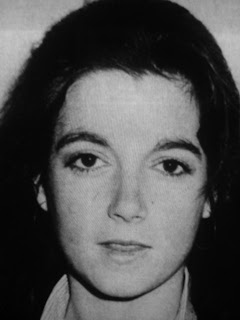
Dominique Ellen Dunne was an American actress. Born and raised in Santa Monica, California, she made her on-screen debut with the television film Diary of a Teenage Hitchhiker, and thereafter played the recurring roles of Erica on the drama series Family (1980), and Paulina Bornstein on the comedy series Breaking Away (1980–1981).

Joseph Lyle Menéndez and Erik Galen Menéndez are American brothers who were convicted in 1996 of the murders of their parents, José and Mary Louise "Kitty" Menéndez.
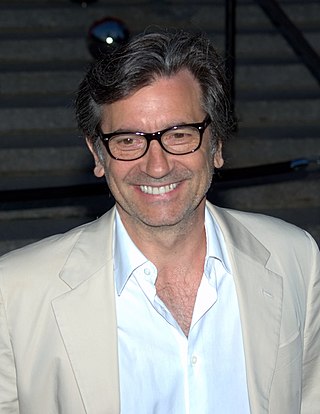
Thomas Griffin Dunne is an American actor, film producer, and film director. Dunne studied acting at The Neighborhood Playhouse School of the Theatre in New York City. He is known for portraying Jack Goodman in An American Werewolf in London (1981) and Paul Hackett in After Hours (1985), for which he was nominated for the Golden Globe Award for Best Actor – Motion Picture Musical or Comedy.
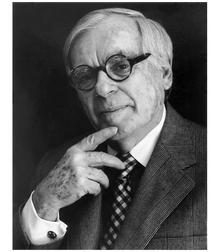
Dominick John Dunne was an American writer, investigative journalist, and producer. He began his career in film and television as a producer of the pioneering gay film The Boys in the Band (1970) and as the producer of the award-winning drug film The Panic in Needle Park (1971). He turned to writing in the early 1970s. After the 1982 murder of his daughter Dominique, an actress, he began to write about the interaction of wealth and high society with the judicial system. Dunne was a frequent contributor to Vanity Fair, and, beginning in the 1980s, often appeared on television discussing crime.

Ordeal by Innocence is a work of detective fiction by British writer Agatha Christie, first published in the UK by the Collins Crime Club on 3 November 1958 and in the US by Dodd, Mead and Company the following year. The UK edition retailed at twelve shillings and sixpence (12/6) and the US edition at $2.95.

Martha Elizabeth Moxley was a 15-year-old American high school student from Greenwich, Connecticut, who was murdered in 1975. Moxley was last seen alive spending time at the home of the Skakel family, across the street from her home in Belle Haven. Michael Skakel, also aged 15 at the time, was convicted in 2002 of murdering Moxley and was sentenced to 20 years to life in prison. In 2013, Skakel was granted a new trial by a Connecticut judge who ruled that his counsel had been inadequate, and he was released on $1.2 million bail. On December 30, 2016, the Connecticut Supreme Court ruled 4–3 to reinstate Skakel's conviction. The Connecticut Supreme Court reversed itself on May 4, 2018, and ordered a new trial. On October 30, 2020, the 45th anniversary of Moxley's murder, the state of Connecticut announced it would not retry Skakel for Moxley's murder. The case attracted worldwide publicity, as Skakel is a nephew of Ethel Skakel Kennedy, the widow of U.S. Senator Robert F. Kennedy.
The Irish Mob is a usually crime family-based ethnic collective of organized crime syndicates composed of primarily ethnic Irish members which operate primarily in Ireland, the United States, the United Kingdom, Canada and Australia, and have been in existence since the early 19th century. Originating in Irish-American street gangs – famously first depicted in Herbert Asbury's 1927 book, The Gangs of New York – the Irish Mob has appeared in most major U.S. and Canadian cities, especially in the Northeast and the urban industrial, including Boston, New York City, Philadelphia, Pittsburgh, Baltimore, Cleveland, and Chicago.
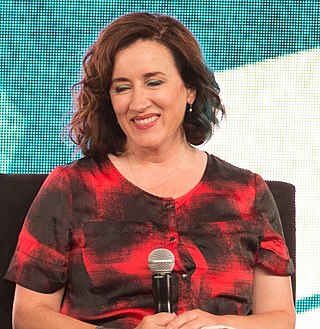
Maria Josephine Doyle Kennedy is an Irish singer and actress. With a singing and acting career that has spanned more than 30 years, she has established herself as one of Ireland's most prolific artists and entertainers. As an actress, she is best known for her extensive television roles as Patsy in Father Ted (1998), Catherine of Aragon in The Tudors (2007–2010), Vera Bates in Downton Abbey (2011), Siobhán Sadler in Orphan Black (2013–2017), and Jocasta Cameron in Outlander (2018–present). More recently in 2022, she starred as the Scottish journalist Tannie Maria in the series Recipes for Love and Murder, set in the Karoo in South Africa and adapted for the screen from the book of the same name by Sally Andrew.
Kathryn Harrison is an American author. She has published seven novels, two memoirs, two collections of personal essays, a travelogue, two biographies, and a book of true crime. She reviews regularly for The New York Times Book Review. Her personal essays have been included in many anthologies and have appeared in Bookforum, Harper's Magazine, More Magazine, The New Yorker, O, The Oprah Magazine, and Vogue, Salon, and Nerve.
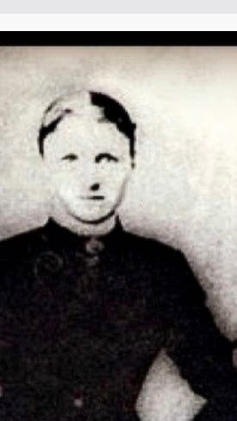
Bridget Cleary was an Irish woman who was murdered by her husband in 1895. She was either immolated or her body was set on fire immediately after her death. The husband's stated motive was his belief that she had been abducted by fairies and replaced with a changeling, which he then killed. The gruesome nature of the case prompted extensive press coverage, and the trial was closely followed by newspapers across Ireland.
N. M. Kelby is an American short-story and novel writer.

Steven Wayne Benson was an American convicted double murderer of his mother, tobacco heiress Margaret Benson, and his brother, tennis player Scott Benson. Margaret Hitchcock Benson was heiress of the Lancaster Leaf Tobacco Co., Lancaster, Pa., and had no connection with Benson & Hedges brand cigarettes manufactured in the US by Philip Morris.

An Inconvenient Woman is a 1990 novel by Dominick Dunne. Its plot centers on the affair between married Jules Mendelson, an extremely influential member of Los Angeles high society, and Flo March, a diner waitress and aspiring actress whose life is transformed by the illicit relationship until she finds herself the inconvenient woman of the title.
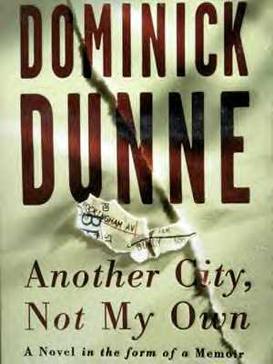
Another City, Not My Own is a 1997 novel by Dominick Dunne. The roman à clef, subtitled A Novel in the Form of a Memoir, was inspired by Dunne's experiences in Los Angeles while covering the O.J. Simpson murder trial for Vanity Fair.
Dominick Dunne: After the Party is a 2008 documentary directed by Kirsty de Garis and Timothy Jolley about Hollywood author and reporter Dominick Dunne. Dunne is a prominent columnist and society correspondent. The documentary reflects on his career in the entertainment industry. In the film, he remembers his past as a World War II veteran, falling in love and raising a family, his climb and fall as a Hollywood producer, and his comeback as a writer.
Eleanor Taylor Bland was an African-American writer of crime fiction. She was the creator of Lincoln Prairie, Illinois police detective Marti McAllister.

Too Much Money is the last novel written by Dominick Dunne, published posthumously in the year of his death 2009. A roman à clef, its protagonist, August (Gus) Bailey, is an alter ego of the author. Dunne revives the world he first introduced in his mega-bestselling novel People Like Us, and updates readers on favorite characters. The book examines and satirizes the lifestyles of the ultra-wealthy in New York.

Gone Girl is a 2012 crime thriller novel by American writer Gillian Flynn. It was published by Crown Publishing Group in June 2012. The novel was popular and made the New York Times Best Seller list. The sense of suspense in the novel comes from whether Nick Dunne is responsible for the disappearance of his wife Amy.

Ellen Beatriz Griffin Dunne was an American activist. After the death of her daughter, Dominique Dunne, Dunne founded Justice for Homicide Victims. In 1989, she was recognized for her advocacy work by President George H. W. Bush.













